
Effects of Moon's Thermal State on the Impact Basin Ejecta Distribution
Sign Up to like & getrecommendations! Published in 2017 at "Geophysical Research Letters"
DOI: 10.1002/2017gl075405
Abstract: We investigate how different temperature gradients of the Moon affect the ejection of lithic and molten materials for impact basin several hundred kilometers in diameter to quantify the thickness and melt content of ejecta blanket… read more here.
Keywords: ejecta; impact; ejecta thickness; impact basin ... See more keywords

Mineralogical mapping of the Kerwan quadrangle on Ceres
Sign Up to like & getrecommendations! Published in 2019 at "Icarus"
DOI: 10.1016/j.icarus.2017.07.021
Abstract: Abstract The Ceres surface is globally composed of Mg-phyllosilicates, ammoniated clays, carbonates and dark components. To obtain a more detailed mineralogical and geological investigation, the dwarf planet surface has been divided into fifteen quadrangles. The… read more here.
Keywords: kerwan quadrangle; phyllosilicates ammoniated; ejecta; ceres surface ... See more keywords

Are hypervelocity impacts able to produce chondrule-like ejecta?
Sign Up to like & getrecommendations! Published in 2019 at "Planetary and Space Science"
DOI: 10.1016/j.pss.2019.06.008
Abstract: Abstract Chondrules are one of the major components of primitive meteorites. Their sphericity indicates they formed as molten fragments or droplets but conditions and mechanisms of chondrule formation remain unknown. A possible scenario is their… read more here.
Keywords: hypervelocity impacts; metal beads; size; ejecta ... See more keywords

Application of photon Doppler velocimetry for characterization of ejecta from shock-loaded samples
Sign Up to like & getrecommendations! Published in 2018 at "Journal of Applied Physics"
DOI: 10.1063/1.5029958
Abstract: We consider the problem of recovering the physical parameters of ejecta from data of photon Doppler velocimetry (PDV). The results of PDV measurements of ejecta production from shock-loaded Pb samples are presented. Shockwaves in the… read more here.
Keywords: loaded samples; ejecta; doppler velocimetry; photon doppler ... See more keywords
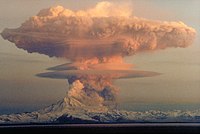
Numerical simulations of solid cerium ejecta transporting in vacuum and in non-reactive and reactive gases
Sign Up to like & getrecommendations! Published in 2023 at "Journal of Applied Physics"
DOI: 10.1063/5.0147712
Abstract: When a shock wave impacts a roughened metal/gas interface, metal ejecta particles emit and transport in the gas. The exchanges of momentum and energy between ejecta particles and the gas occur. If active metal particles… read more here.
Keywords: non reactive; gas; ejecta particles; temperature ... See more keywords

Properties of the post in-spiral common envelope ejecta II: dust formation
Sign Up to like & getrecommendations! Published in 2020 at "Monthly Notices of the Royal Astronomical Society"
DOI: 10.1093/mnras/staa2169
Abstract: We study the formation of dust in the expanding gas ejected as a result of a common envelope binary interaction. In our novel approach, we apply the dust formation model of Nozawa et al. to… read more here.
Keywords: formation; common envelope; dust formation; ejecta ... See more keywords
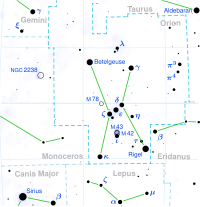
The infancy of core-collapse supernova remnants
Sign Up to like & getrecommendations! Published in 2021 at "Monthly Notices of the Royal Astronomical Society"
DOI: 10.1093/mnras/stab116
Abstract: We present 3D hydrodynamic simulations of neutrino-driven supernovae (SNe) with the PROMETHEUS-HOTB code, evolving the asymmetrically expanding ejecta from shock breakout until they reach the homologous expansion phase after roughly one year. Our calculations continue… read more here.
Keywords: core collapse; collapse supernova; infancy core; supernova remnants ... See more keywords

Impact of systematic nuclear uncertainties on composition and decay heat of dynamical and disk ejecta in compact binary mergers
Sign Up to like & getrecommendations! Published in 2022 at "Monthly Notices of the Royal Astronomical Society"
DOI: 10.1093/mnras/stad1458
Abstract: Theoretically predicted yields of elements created by the rapid neutron capture (r-) process carry potentially large uncertainties associated with incomplete knowledge of nuclear properties and approximative hydrodynamical modelling of the matter ejection processes. We present… read more here.
Keywords: systematic nuclear; impact systematic; ejecta; binary mergers ... See more keywords
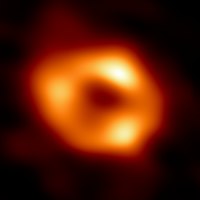
Mergers of black hole–neutron star binaries and rates of associated electromagnetic counterparts
Sign Up to like & getrecommendations! Published in 2019 at "Monthly Notices of the Royal Astronomical Society"
DOI: 10.1093/mnras/stz1147
Abstract: Black hole-neutron star (BHNS) binaries are amongst promising candidates for the joint detection of electromagnetic (EM) signals with gravitational waves (GWs) and are expected to be detected in the near future. Here we study the… read more here.
Keywords: ejecta; neutron star; black hole; hole neutron ... See more keywords
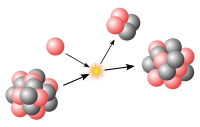
Fast neutrino flavor conversion, ejecta properties, and nucleosynthesis in newly-formed hypermassive remnants of neutron-star mergers
Sign Up to like & getrecommendations! Published in 2020 at "Physical Review D"
DOI: 10.1103/physrevd.102.103015
Abstract: Neutrinos emitted in the coalescence of two neutron stars affect the dynamics of the outflow ejecta and the nucleosynthesis of heavy elements. In this work, we analyze the neutrino emission properties and the conditions leading… read more here.
Keywords: emission; process; neutron star; flavor ... See more keywords
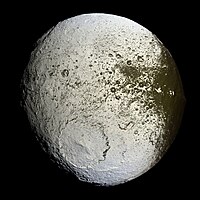
An artificial impact on the asteroid (162173) Ryugu formed a crater in the gravity-dominated regime
Sign Up to like & getrecommendations! Published in 2020 at "Science"
DOI: 10.1126/science.aaz1701
Abstract: Blowing a crater in asteroid Ryugu The Hayabusa2 spacecraft was designed to collect samples from the nearby asteroid (162173) Ryugu and return them to Earth for laboratory analysis. Arakawa et al. describe how the spacecraft's… read more here.
Keywords: crater; artificial impact; ejecta; surface ... See more keywords